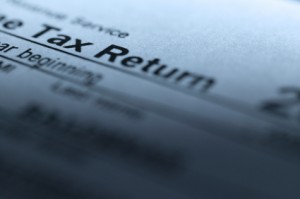If your Pennsylvania commercial property was built in the last 15 years in Montgomery, Chester or Delaware counties, there is a good chance the value of your property is over-assessed. Before deciding whether to do a real estate tax appeal, you should first speak with a commercial appraiser to do a preliminary analysis using one or more of the three valuation methods.
-
The Income Approach to value is a method of converting your anticipated monthly rental income into present value by capitalizing net operating income by a market derived capitalization rate. Essentially, a capitalization rate is a rate of return on investment. Capitalization rates are taken from sales of similar investment properties and applied to the net income of the property to determine the market value of your property.
There are several ways to estimate value using capitalization. The method used depends upon several factors such as the timing and regularity of the cash flows, period of time the investment is held, whether or not long term leases are involved. Direct capitalization is the most widely used and simplest approach to apply because it does not require explicit projections of income and assumes that expectations for future income are similar for all the properties compared. It is used when income is not expected to vary significantly over time. Direct capitalization typically involves an average of several years’ income. The net operating income is then capitalized by an overall capitalization rate to arrive at market value.
- The Sales Comparison Approach to value looks at comparable commercial properties that have similar use and square footage that were sold in the area in the last year. This is the same method used in residential tax appeals.
-
The Cost Approach is typically used for vacant land or property that does not generate income. The cost approach is performed by valuing the land at its highest and best use. The fundamental premise of the cost approach is that a potential user of the property would not pay more for the property than it would cost to build an equivalent property. The value of the land plus the depreciated cost of the improvements should equal the total market value estimate.
The appraiser would take an average of all methods that apply to arrive at the fair market value and multiply it by the common level ratio to arrive at the correct assessed value. If that correct assessed value is less than the actual assessed value of your property you should contact Gregory J. Spadea at 610-521-0604 or online of Spadea & Associates, LLC. The deadline to file an annual real estate tax appeal is August 1. Keep in mind the appraiser may need four to six weeks to complete an appraisal so you need to contact the appraiser in May or June to meet the August 1, filing deadline.
















